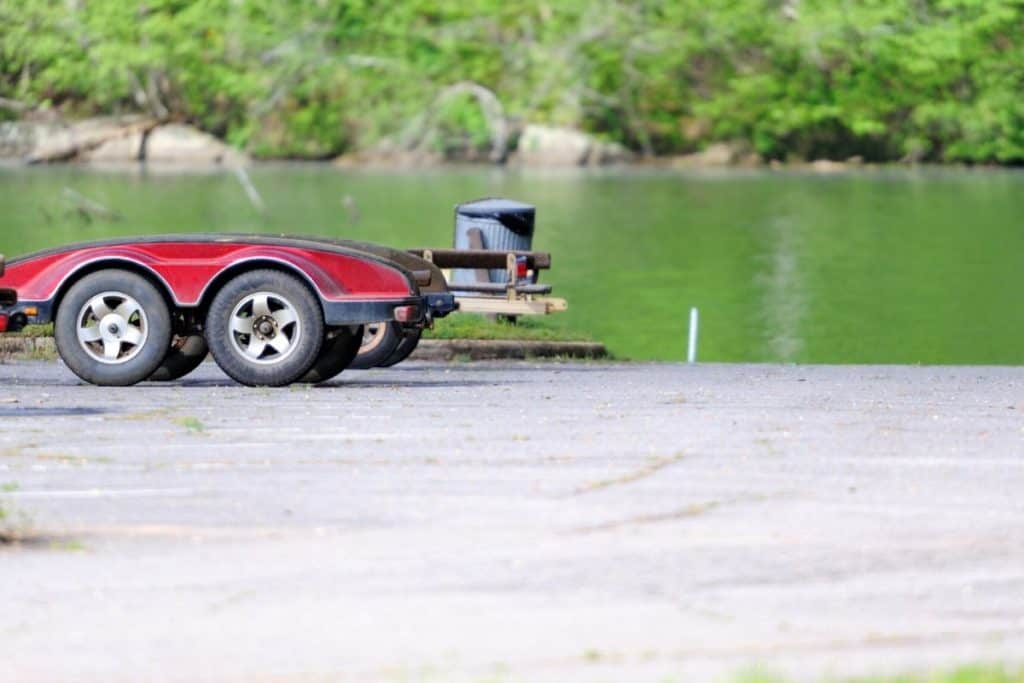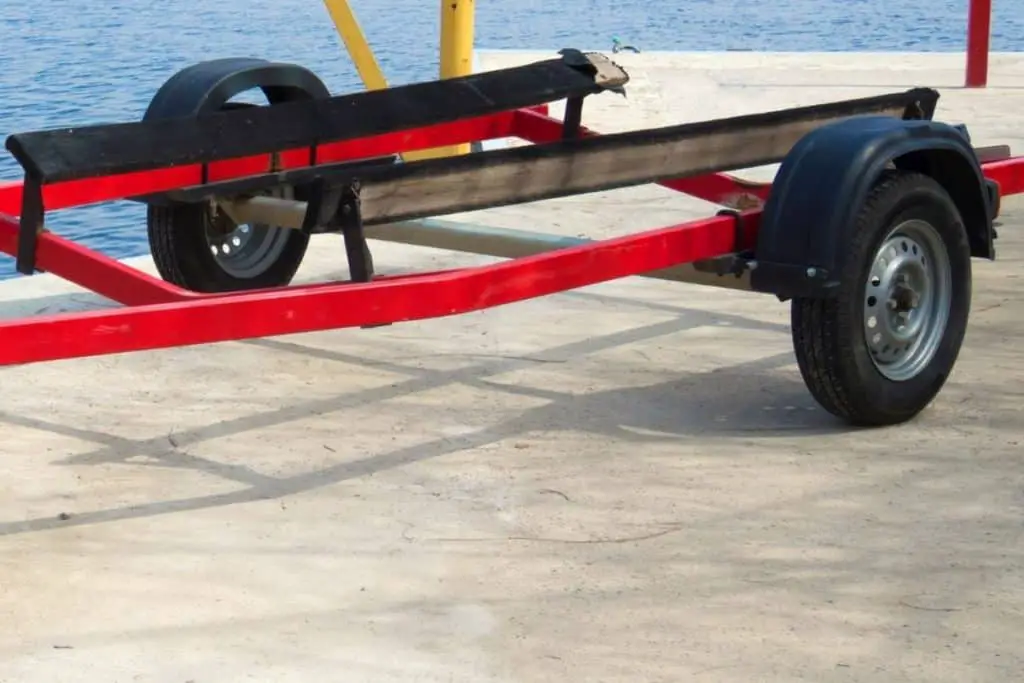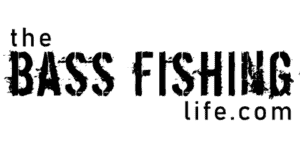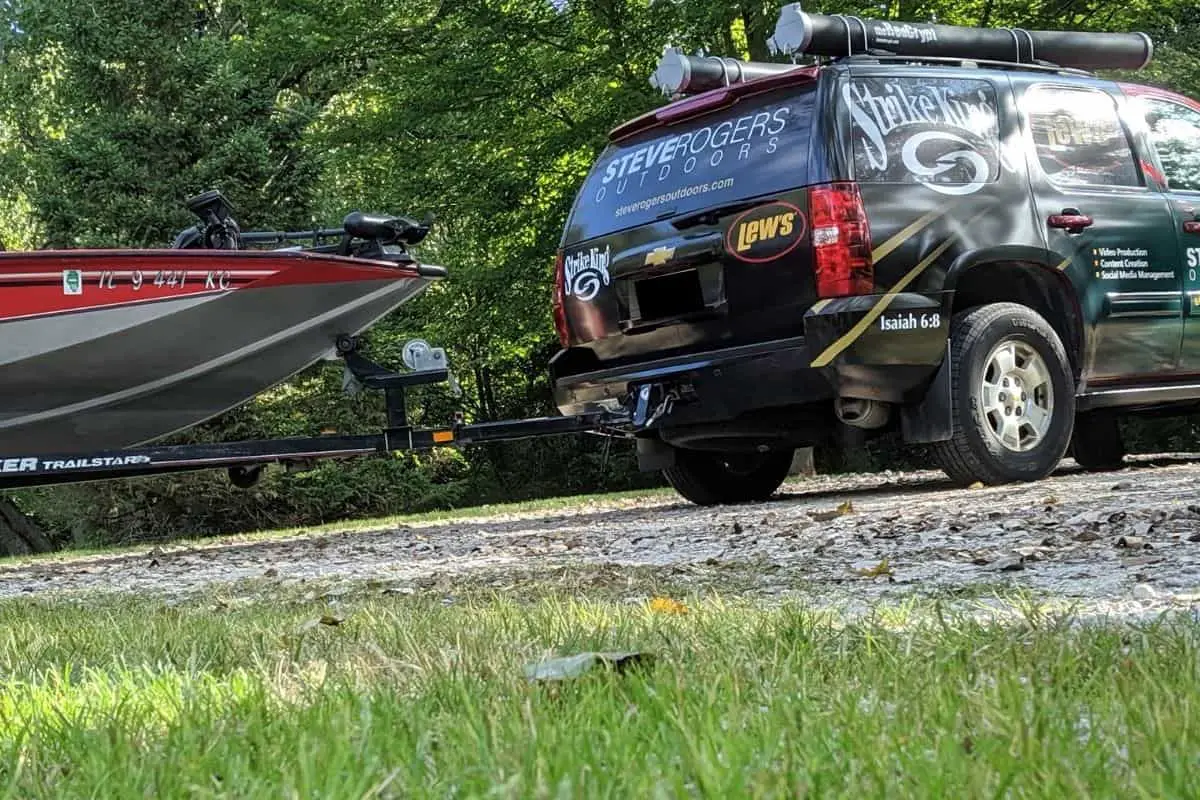Trailering a boat down the road can be a harrowing experience if proper precautions are not taken. There are also basic driving skills that can help new boat owners trailer their boat safely down the highway.
The following items need to be taken into consideration for safe boat towing:
- Be Aware of Braking Distance
- The Boat Will Follow Through Tight Spaces
- Turning Radius
- Be a Master of Backing Up
- Basic Maintenance for Safe Boat Towing
- Choose the Proper Tow Vehicle for the Weight
Fishing from a bass boat is an excellent experience. Getting that boat to the ramp and back home safely should be a great experience as well.
Be Aware of Braking Distance When Towing a Bass Boat
It seems like common sense, but many new boat owners are not keenly aware of how far it takes to stop their vehicle and trailer.
We spend 99% of our time driving without the additional weight of a bass boat behind us, so it becomes second-nature to drive like we are not towing anything.
My best suggestion is to take your tow vehicle and boat to a large, empty parking lot.
Drive at various speeds and then hit the brakes.
How much longer did it take you to stop?
If you are driving with a 18ft aluminum bass boat the results will be much different than if you are driving a 21ft fiberglass rig.
Then drive around the parking and hit the brakes a little harder. Simulate a situation when traffic suddenly slows down and aggressive braking is needed.
It is important to keep a much greater distance between you and the vehicle in front of you when towing a boat down the road. This can be difficult with heavy traffic and cars continually slipping into the extended space you leave, but it is necessary.
It is also important to keep in mind that rear-ending is almost assured that you will get the ticket – even if traffic in front of you came to a screeching halt.
Here is an article about properly insuring your fishing equipment and bass boat.
The Boat Will Follow in Tight Spaces
I have been fortunate to tow a boat many tens of thousands of miles.
This experience has led me through hundreds of construction zones, narrow bridges, and miniscule country roads.
When I first started towing a bass boat through these types of situations, I would look from the driver’s side mirror to the passenger’s side mirror. It seemed like my head was looking left-right-left-right again-and-again.
The end-result was the boat starting to sway. While I thought I was driving straight, the continuous looking at the side mirrors meant my hands turned the wheel the slightest amount. This caused the trailer to sway, make me nervous, and then it would get worse.
Looking in your side mirror and seeing your trailer tire inches from the concrete barriers in a construction zone is nerve-wracking.
So how do we fix that?
When driving through a tight space, keep those eyes forward and focus on maintaining the tow vehicle between the lines.
The boat trailer will follow.
It’s that simple of a fix.
Of course, the occasional glance to a side mirror in those tight situations is OK, but not too often.
Be Aware of the Turning Radius Needed
The passenger side tire on a bass boat trailer can take a beating.
It hops over curbs, dips into potholes, and rubs parking blocks way more than it should.
This is a result of turning radius.
The amount of space needed to pull into a gas station, restaurant, or a parking lot can vary a lot depending on the tow vehicle. A truck with a long wheelbase is going to require a lot more space than a tow vehicle with a shorter wheelbase.
Think about the semis going down the interstate. The tractor is very short compared to the overall length of the trailer. This helps with reducing the overall radius needed to turn and also makes a huge difference when backing up the trailer.
While taking your new trailer to the empty parking lot to practice braking, make sure to take some practice turns to see how much space you need.
My worst tow vehicle for radius was an extended cab pickup truck. My best was a shorter wheelbase Chevy Trailblazer.

Practice Backing up Your Boat Trailer
The worst feeling you can have when towing a boat is pulling into somewhere that you feel stuck. If you can’t expertly back up that boat trailer, the feeling is even worse.
The other place this skill is most noticeable is at the boat ramp.
Choose most any boat launch on a nice summer weekend and let the show begin. You will see about every mistake possible. I even watched a couple of youngsters somehow drop the entire fiberglass boat off the trailer and onto the ramp. I’m sure that phone call home was not fun.
If you are worried about backing up a boat trailer – don’t be.
The most common mistake I see is people attempting to back up too fast. Slow-and-steady will get the job done almost every time.
Small adjustments and slower speeds allow the driver to make a directional change without needing to pull forward and start over.
Most new boat owners will turn and look over their shoulder. The more experience you get you will feel comfortable looking in the side mirrors to expertly back the boat up.
Once again, this is an excellent skill to practice in an empty parking lot.
Basic Boat Trailer Maintenance for Safe Towing
It is terrifying to look at some of the boat trailers going down the highway. I have no idea how they don’t collapse and cause a major accident.
Even with proper preventative maintenance, things are going to happen. Trust me. I’ve dealt with lots of situations traveling the country.
Being prepared the best you can will make life easier and safer.
Tongue Weight
Make sure that you do not have too much weight on the tongue of the boat. It is important to check the rating sticker on the driver’s door to be sure that things are configured properly.
One way to keep this from happening is to not overload the front compartments of your bass boat too much. Heavier storage boxes should be positioned more towards the center of the boat or in the rear compartments.
Too much tongue weight can lift your steering tires of the tow vehicle and cause an extremely dangerous situation.
Proper Hitch Alignment
When choosing a hitch for your tow vehicle, make sure to purchase an offset hitch if needed to ensure your boat is not tipped up or down.
This puts unneeded stress on the connection between the trailer and tow vehicle.

Propper Trailer Tires
Trailer tires are often forgotten about. They shouldn’t be.
Many boat and trailer packages come with what is referred to as a “sport” tire.
Essentially, this is not a radial like you have on your car or truck. These tires are fine if you are only towing your vehicle a short distance.
If you plan to cover many thousands of miles, like I do, then I would make sure you have actual radials for your bass boat trailer. These tires last longer, are more durable to road hazards, and stay cooler.
If you are not sure what your trailer has, ask the dealer or take it to a tire store.
Grease Those Bearings on the Trailer
Some new bass boat trailers are coming with what are called oil bath bearings. These are nice because the bearings are sealed and constantly in an oil bath. Oil bath bearings also have a clear front cap so you can see how much oil is in there.
For the traditional grease trailer bearings, constant diligence is needed.
First, make sure that you use a marine rated grease when filling them.
Second, check the amount of grease before every major trip. It is not fun to change bearings while on vacation.
It is also a good idea to take a peek at the rear side of each tire. If you see grease starting to spray on the back side of the rim, that means a rear seal is starting to go. Get that replaced right away to save future problems on the interstate.
Carry Extra Fuses and an Electrical Kit with a Voltage Tester when Trailering
Trailer wiring might be the most frustrating experience of boat ownership.
This is also one of the most dangerous when towing. If your bass boat is large enough, other vehicles will not be able to see the taillights of your tow vehicle. Keeping your trailer lights operational is of paramount importance.
Trailer wiring and lights take a beating when towing. They might check OK when you leave and then quit working by the time you get to the first rest stop.
Keeping a basic electrical kit and voltage tester is something you will use again-and-again.
Most lighting issues are caused from grounding problems or dirty connections. A voltage tester will help you quickly determine where the actual problem is and save hours of frustration.
Every time I stop for gas, food, or a potty break, I check my lights.
Have the Proper Tow Vehicle
I like to quote Tim Allen from Home Improvement on this one, “More power.”
Having a tow vehicle that is underpowered is not only inefficient, it can be unsafe.
As I mentioned earlier in the article, all vehicles have a ratings plate on the inside of the driver’s door. This will go over multiple gross vehicle weight ratings, tire pressures, tow capacities, etc.
It is never a problem to have too much towing power. Many vehicles also offer an option for a towing package. This often includes a transmission cooler and heavier shocks and springs.
Taking the time to get a proper tow vehicle is a decision you will always be happy with.
Final Thoughts
Owning a boat is an awesome experience. Towing a boat should not be stressful and ruin that experience.
Taking the time to practice and keep your trailer in good order will help you have many years of good service from your purchase.
Tight lines. Be safe and make sure to encourage someone today. You never know how you may change their life forever.
Isaiah 6:8

